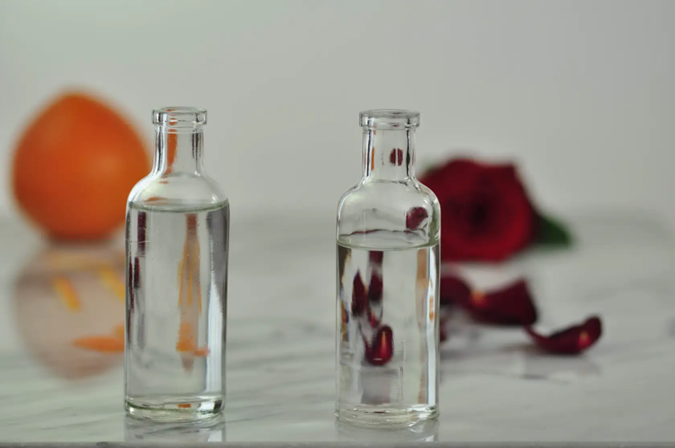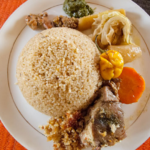In the vibrant and aromatic world of Moroccan cuisine, two ingredients stand out for their unique and refreshing flavors: orange blossom water and rose water. These floral-infused waters add a touch of elegance and a burst of delightful fragrance to a wide range of dishes, desserts, and beverages. Let’s explore the enchanting qualities of Moroccan orange blossom water and rose water and discover how they elevate the culinary experience.
Orange blossom water, also known as “fleur d’oranger,” is derived from the distillation of bitter orange blossoms. The result is a clear liquid with a sweet and floral aroma that instantly transports you to sun-kissed orange groves. This fragrant water has long been used in Moroccan cuisine as a key ingredient in both savory and sweet dishes.
In savory recipes, orange blossom water adds a subtle yet distinctive flavor. It is often used in marinades for meat and poultry dishes, lending a delicate floral note that beautifully complements the savory ingredients. Additionally, it is a popular ingredient in Moroccan tagines, where it imparts a hint of sweetness and floral complexity to the slow-cooked stews.
However, it is in the realm of desserts where orange blossom water truly shines. It is a beloved addition to Moroccan pastries, such as the famous “chebakia” and “makroud,” infusing them with a heavenly floral fragrance. From almond-based sweets to honey-soaked delicacies, orange blossom water adds a touch of elegance and sophistication to every bite.
Similarly, rose water, or “eau de rose,” is created through the distillation of rose petals. It boasts a delicate and romantic aroma that captivates the senses. In Moroccan cuisine, rose water is a cherished ingredient that adds a subtle floral nuance to various dishes and drinks.
When used in cooking, rose water enhances the flavors of both sweet and savory preparations. It is commonly found in Moroccan desserts like “shebakia” and “gazelle horns,” where it adds an alluring floral note to the honey and almond-based treats. Rose water is also a delightful addition to creamy rice puddings, delicate custards, and fragrant teas.
Beyond desserts, rose water lends its enchanting flavor to savory dishes as well. It can be incorporated into marinades for roasted meats or used as a finishing touch, drizzled over salads or mixed into dressings. The floral undertones of rose water bring an unexpected and delightful twist to traditional savory recipes.
Apart from their culinary uses, both orange blossom water and rose water are valued for their aromatic and therapeutic properties. They are often used in beauty and skincare products for their soothing and refreshing effects on the skin. From facial toners to bath oils, these floral waters provide a luxurious and sensory experience that is synonymous with Moroccan beauty rituals.
In Moroccan culture, orange blossom water and rose water are also integral to traditional celebrations and rituals. They are commonly used during weddings and other joyous occasions to sprinkle on guests as a gesture of welcome and good fortune. The delicate fragrance of these floral waters creates an atmosphere of celebration and indulgence, leaving a lasting impression on all who partake in the festivities.
Whether used in cooking, skincare, or cultural traditions, Moroccan orange blossom water and rose water offer an exquisite sensory experience. Their refreshing flavors and captivating aromas add a touch of elegance to any dish or occasion. So, the next time you’re looking to elevate your culinary creations or pamper your senses, reach for the enchanting flavors of Moroccan orange blossom water and rose water and immerse yourself in the magic of Morocco.








